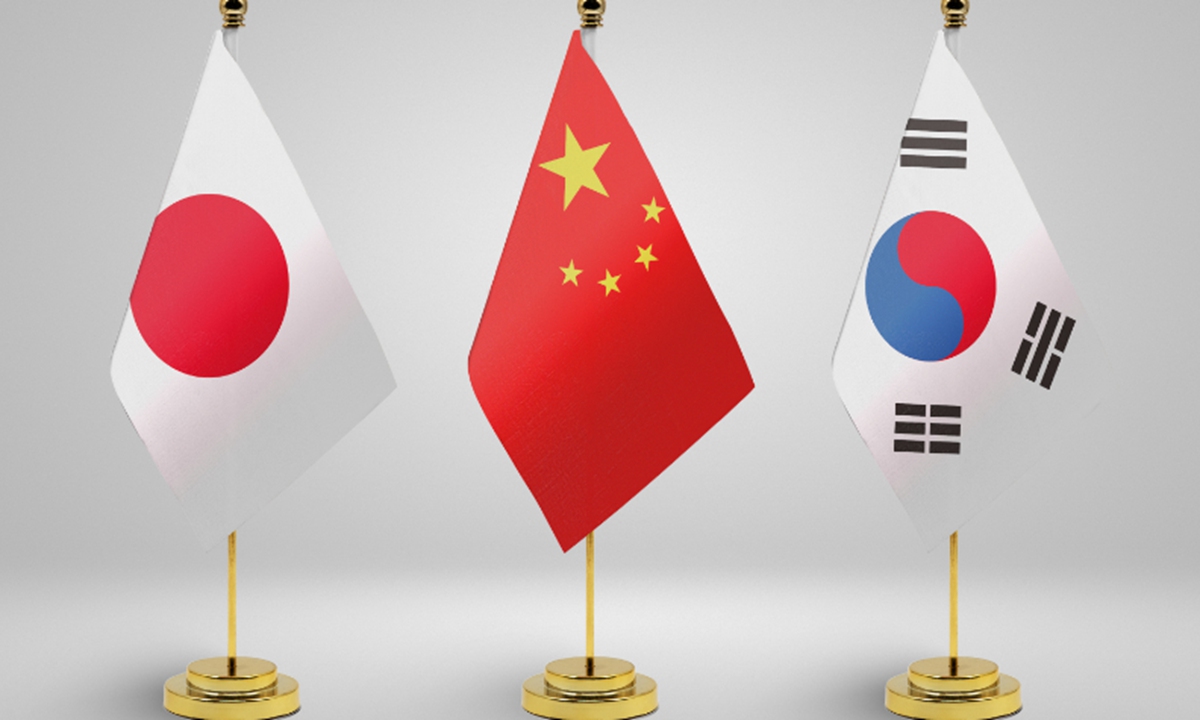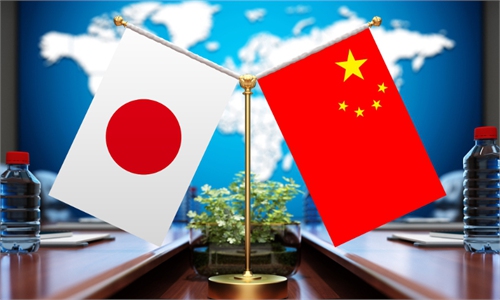
File Photo
According to South Korea's Foreign Ministry on November 24, the 10th China-Japan-ROK trilateral foreign ministers' meeting will be held on Sunday in Busan, South Korea. Chinese Foreign Ministry Spokesperson Mao Ning said on November 21 that "the three sides are in contact on matters related to this meeting." If realized, this will be the first face-to-face meeting of the three foreign ministers in more than four years. More importantly, their meeting, as one of the essential parts of the mechanism of trilateral cooperation, is often regarded as "the last important link" in the preparations for the China-Japan-ROK leaders' meeting. Therefore, the biggest expectation this meeting brings to people is undoubtedly whether it can lay the foundation for the three countries to further promote cooperation and resume the leaders' meeting.After more than 20 years of development, the China-Japan-ROK trilateral cooperation mechanism, which started in 1999, has gradually formed a system centered on the leaders' meeting and supported by ministerial meetings, senior officials' meetings and more than 70 working-level mechanisms, and has established the Trilateral Cooperation Secretariat in Seoul. China, Japan and South Korea, in that order, take turns to assume the presidency, which is currently held by South Korea. In other words, the mechanism is quite mature. The last China-Japan-ROK foreign ministers' meeting was held in Beijng in August 2019, then this mechanism was unexpectedly interrupted by the sudden Covid-19 pandemic. However, over the past four decades, the obstacles to the restart of this mechanism are far more than "natural disasters" such as the epidemic The dramatic changes in the international political landscape have given many people a sense of a "sea change" taking place.
In the midst of this period, there has been a significant increasing involvement of external forces, or the US factor, in East Asia, which has become a dark cloud over the relations among the three countries. The strong involvement of the US as an extraterritorial country in East Asia has changed, interfered with and even destroyed the trilateral cooperation mechanism between China, Japan and South Korea, and the pro-US and pro-Japanese policy pursued by the Yoon administration after it came to power has made South Korea and Japan even more distinctive in the pattern of the two flanks of the US frontline for containment of China. How to balance relations with the US and China, how to deal with the baton from the US, and whether to truly refuse to choose sides and not participate in the confrontation of the blocs are issues that South Korea and Japan cannot avoid, and will inevitably affect the restoration of the China-Japan-ROK trilateral cooperation mechanism.
It should be emphasized that we do not believe that the ROK and Japan are really willing to become a tool of the US against China; if that were the case, then the China-Japan-ROK trilateral cooperation mechanism would lose its meaning. We believe that South Korea and Japan's desire to revive the China-Japan-ROK trilateral cooperation mechanism is real and mainstream. Is it so difficult to choose between the triumph of flowers and fruits a few steps ahead and the geopolitical quagmire of filth and danger a few steps back?
For today's South Korea and Japan, the US factor is not insurmountable. Even the US itself is not willing to completely break with China. Washington has recently emphasized repeatedly that it does not want to "decouple" from China, which means it intends to minimize the costs of competing with China. The US has no right to interfere, and it's not appropriate to say much about it, when South Korea and Japan push for the resumption and continued development of the China-Japan-ROK cooperation mechanism from the perspective of their respective national interests. Ultimately, it depends on the choices made by South Korea and Japan. In other words, only after dispelling the lingering clouds over the trilateral relationship can this outlook become clearer.
The China-Japan-ROK cooperation mechanism has already reached a considerable height, and sees promising prospects. It would be unimaginable to abandon this collaboration due to unforeseen circumstances. The restart and new beginning seem inevitable. As the chairing nation, South Korea has displayed a notably positive attitude toward reinstating trilateral leaders' meeting and has made significant efforts, which have received practical support from China and Japan. This demonstrates a basic consensus among the three nations on the China-Japan-ROK cooperation mechanism, allowing for concerted efforts. Ultimately, China, Japan, and South Korea are "neighbors that cannot be moved away." Asia is a shared home for all three, and the benefits of trilateral cooperation far outweigh any potential drawbacks of hostility among them.
In the previous sessions of the China-Japan-ROK leaders' meetings, numerous consensus had been reached on aspects such as the negotiations over the China-Japan-ROK Free Trade Zone, addressing population aging, and enhancing environmental protection cooperation. Substantial collaborative achievements were made, showcasing an exciting and promising future that is worth the joint pursuit of the three countries. The Trilateral Cooperation Vision for the Next Decade released during the China-Japan-ROK leaders' meeting in December 2019 may serve as a new starting point for a renewed phase of collaboration among the three countries. Despite encountering some detours for various reasons, it is never too late to correct the direction and promptly return to the right track. Achieving a "win-win-win" relationship requires joint efforts from China, Japan, and South Korea, with a particular emphasis on Tokyo and Seoul demonstrating more strategic autonomy.

